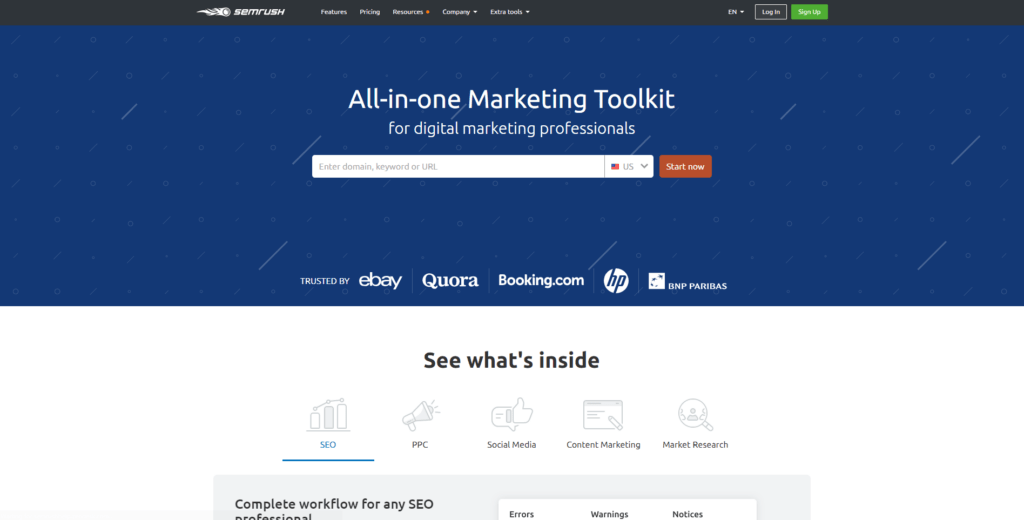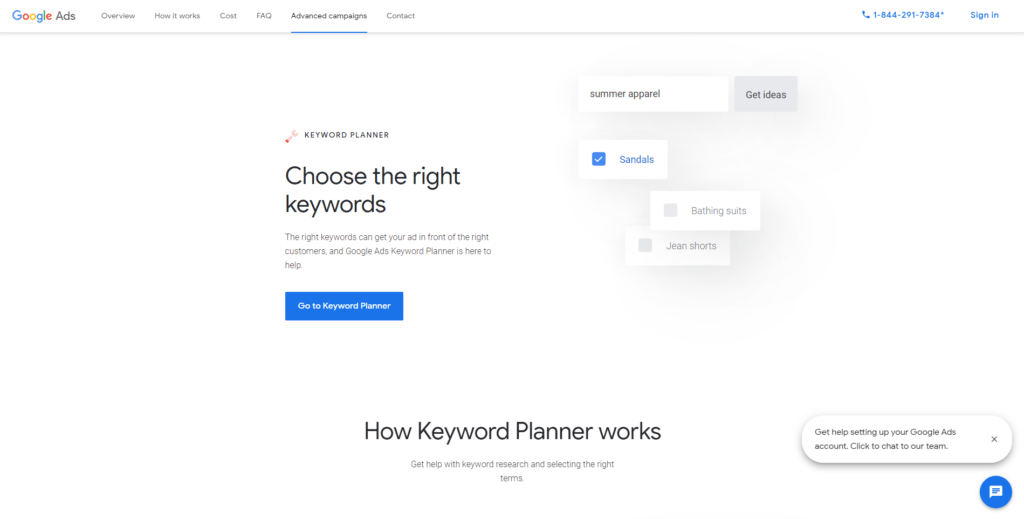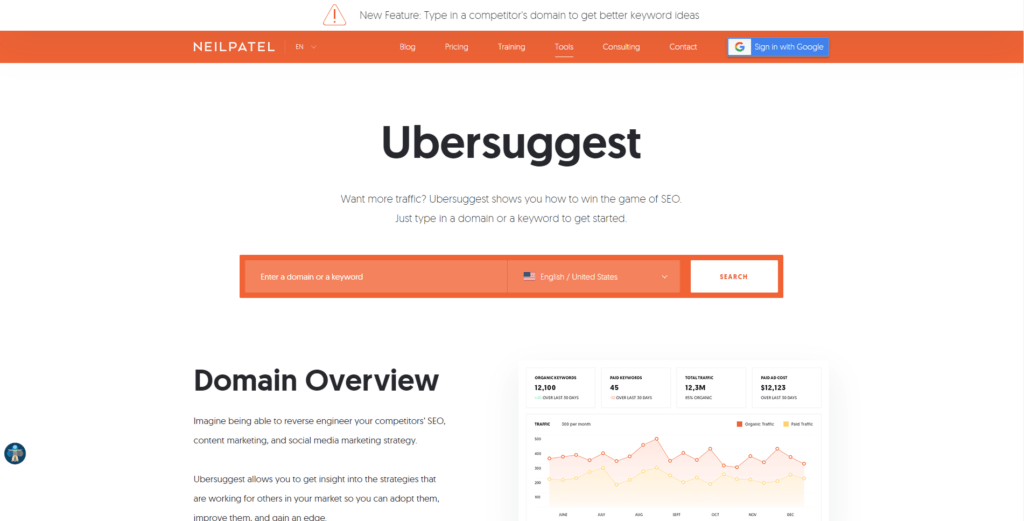Table of Contents
If you’re seeking new content ideas or need a fresh way to connect with your audience, why not try keyword research? Keyword research is a way to figure out what your website visitors are searching for, so you can better interact with them.
In this post, we’ll explain what keyword research is, how it can benefit your affiliate business, and how to go about performing it. Let’s get started!
Ready to take your affiliate program to the next level? Get Easy Affiliate!
What is Keyword Research?
Keyword research is a tactic you can use to help determine what words users are typing into search engines like Google, Bing, and Yahoo to find specific products and services.
When researching these keywords, you look for words and phrases that match your industry or user interests and incorporate them in your content to boost your search traffic, engagement, and conversions.
When performed properly, keyword research makes it so you don’t have to play the guessing game when it comes to knowing what your users are seeking. You can immediately get in front of them with content they’re interested in.
Keyword Research Tips For Your Affiliate Marketing Business
Evaluate Your Current Keyword Performance
The best way to start your keyword research is to evaluate what keywords your website is currently ranking for. By doing this you’ll be able to see where your online business currently stands and understand your position in relation to your competitors.
Ensure Your Keywords Are Benefitting The Customer
When performing your keyword research, you want to search for keywords and phrases that are going to help your customers find answers and solve their problems. If you’re able to tap into the questions a customer has and how to answer them, you’ve immediately created a new lead and a potential new sale.
Watch What Your Competitors Rank For
Analyzing your competition is one of the best ways to figure out where to start or move forward in your keyword research. Using tools like Google Ads, you can type in certain phrases or words along with your competitor’s URL to see what keywords they’re ranking for. Then you can use those keywords as you develop your own strategy.
Ask Your Customers Questions
Another great way to perform keyword research is to talk to your customers and ask them questions. Go directly to the source by putting together a short survey, or check with your support team to learn what are the most common questions they receive. Within this body of information, you’ll find countless keywords to build up your existing strategy.
Keyword Research Tools
When it comes to keyword research, you don’t have to go it alone. There are a slew of great tools out there that make the job much, much easier. Below, we’ve put together a list of a few of our favorites.
SEMrush

SEMrush is a robust SEO suite that includes every tool you need to successfully perform keyword research for your online business.
With their Keyword Overview tool, you can type in a keyword you’re interested in and learn everything there is to know about that keyword, such as how many people are actively searching for it, how popular it is, and it’s gradual popularity over time. The tool also provides lists of keywords related to the one you’re researching, significantly extending the return on your efforts.
SEMrush also includes a content analyzer tool to help you better craft blog posts and other online content, helping to ensure that you’re properly using your keywords to rank in search engines.
Ahrefs

Ahrefs is similar to SEMrush in that it is a complete SEO suite and includes a robust set of tools for keyword research.
With Ahrefs, you can also type a keyword into their search bar and learn all there is to know about it. Like SEMrush, this tool provides lists of suggested keywords related to the one you’re researching.
Ahrefs can also be used to examine what keywords your competitors are ranking for that you are not, helping you to better compete in the online marketplace.
In addition to those tools, Ahrefs features reports on your progress and can even help you understand how to improve your website to rank better in search.
Google Keyword Planner

Google Keyword Planner is a tool for online business owners who want to advertise on Google, but it actually includes a lot of great SEO tools you can use for free.
To access Google Keyword Planner, all you have to do is create or log in to your Google Ads account and enter your payment details (don’t worry, you won’t have to run or activate a campaign).
Once you’re in, you can type in any keyword you’re interested in and learn how many monthly searches that keyword gets, its related keywords, how much people pay to advertise with the keyword, and more.
Ubersuggest

Neil Patel is a well-known authority in SEO and marketing; however, you might not know that he also offers a free tool for keyword research.
Ubersuggest is a tool that gives users everything they need when it comes to performing keyword research for their business, such as keyword suggestions, search volume, competitor keyword ranking, and more.
Also with this tool, you can type in a keyword and see the top Google search results for that keyword, along with its domain score, number of backlinks, social shares, and more.
AnswerThePublic

AnswerThePublic is the perfect tool for those seeking to hear directly from their customers in their research.
With this free tool, users can go to the website, type in a keyword, and discover what users all over the world are searching for or asking about on search engines in relation to that keyword.
This tool also stands out because, unlike the other tools mentioned above, the results from AnswerThePublic are presented in a tidy, visual format.
How to Use Your Keyword Research
Once you’ve put in the hard work of figuring out great keywords to use for your online business, you can start to implement your research into your marketing efforts. The following tips will help you get started.
Create Custom Content Around Keywords
Creating content, such as videos, blog posts, infographics, and podcast episodes around your keywords is a great way to boost your rank and help customers more easily find you. Just be sure to avoid the black hat practice of keyword stuffing. You want to use your keywords enough to rank in search but not so much that your content is low quality and difficult to read.
Build Your Support Base Around Keywords
You can also build your support content around keywords you discover in your research. For example, if your customers are seeking answers on how to navigate certain tools with your software, make sure to create support docs and FAQs about the specific tool to target keywords related to it.
Include Keywords In Product Descriptions
If your affiliate marketing business sells merchandise or has varied product plan tiers, always use the keywords discovered in your research in the product or tier descriptions. Just remember that, when it comes to keyword stuffing, the same goes here as with blog posts and other content.
Take your affiliate program to new heights with Easy Affiliate!
In Conclusion
Sometimes it can seem like connecting and engaging with your online customers is a huge challenge, but great keywords can make the process a whole lot easier. Using proper keyword research to connect with your audience is a great way to keep your business relevant and active. We hope the tips and tools we’ve provided above will help you begin using keyword research to take your online affiliate marketing business to the next level!
To learn more about keyword research and SEO for your affiliate business, please check out our posts about choosing keywords to optimize your content, how to use long-tail keywords, and effective SEO techniques.
If you liked this post, be sure to follow us on Twitter, Facebook, and LinkedIn! And don't forget to subscribe in the box below.



Leave a Reply